ETE Recognizes National Black HIV/AIDS Awareness Day 2022
Monday, February 7th was National Black HIV/AIDS Awareness Day #NBHAAD. In recognition, the ETE Dashboard shared 8 infographics focused on key HIV-related outcomes for Black New Yorkers.
While there have been overall improvements in various metrics for New York State since the beginning of the Ending the Epidemic Initiative, data shows continued racial disparities in HIV prevention and treatment outcomes.
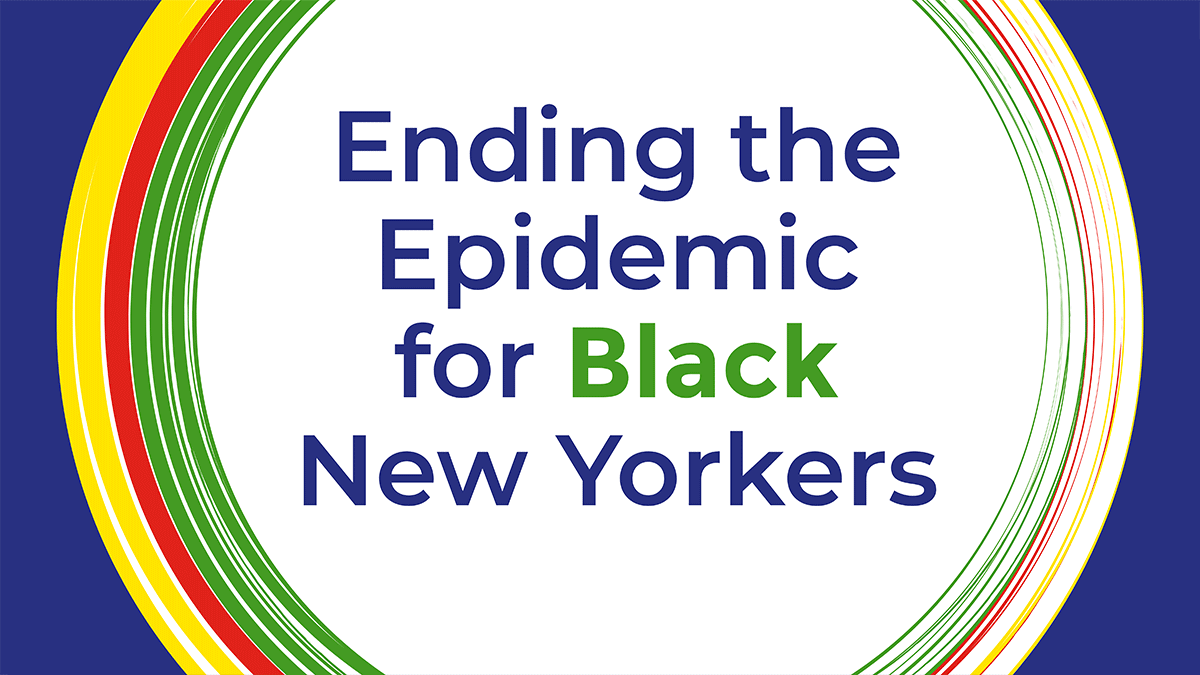
While Black New Yorkers accounted for 46% of all new HIV diagnoses in 2020, Black New Yorkers made up only 14% of PrEP users. [i]
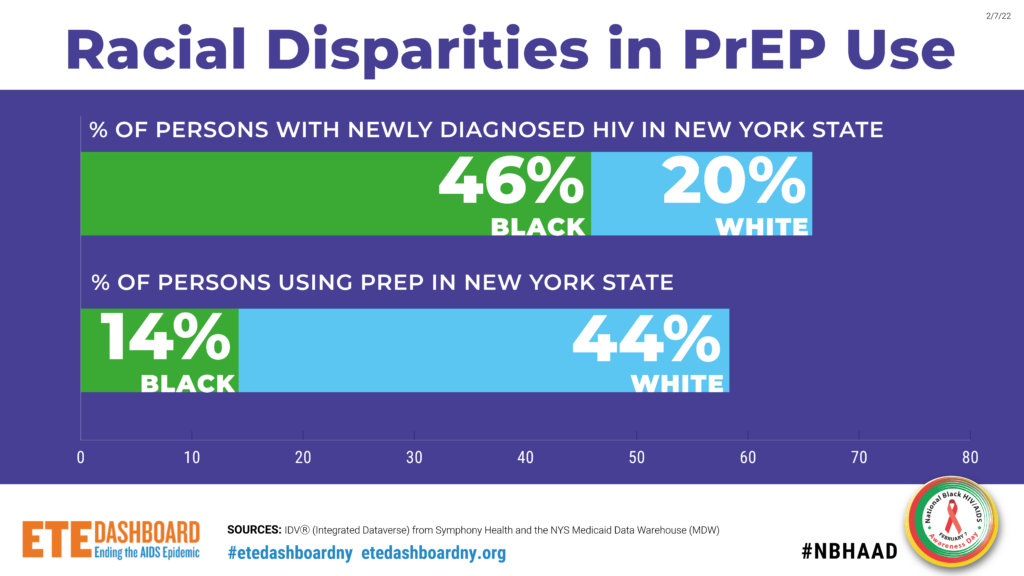
Further, in 2020, only 50% of Black New Yorkers newly diagnosed with HIV achieved viral suppression within 3 months of diagnosis, compared to 59% of White New Yorkers.
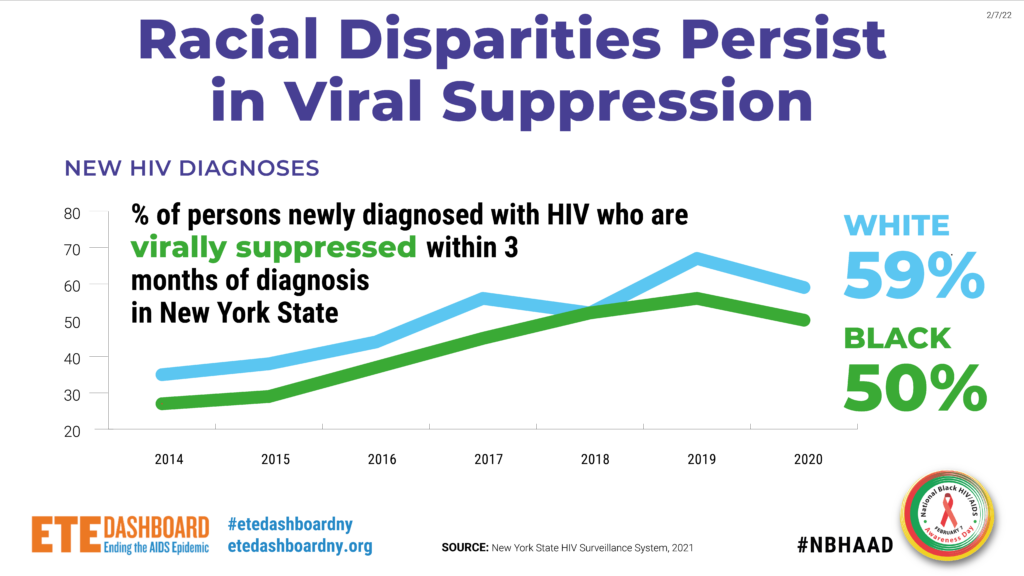
Disparities in viral suppression also persist among gay and bisexual Black men newly diagnosed with HIV. In 2020, only 55% of newly diagnosed Black men who have sex with men (MSM) were virally suppressed within 3 months of diagnosis, compared to 64% of White MSM.
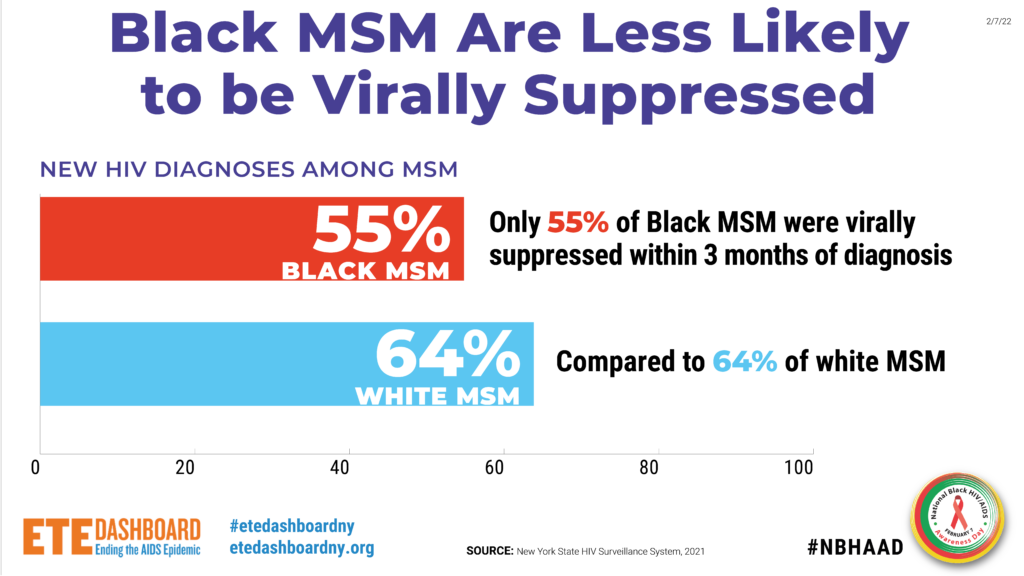
Racial disparities in outcomes including deaths among persons living with diagnosed HIV in New York City were exacerbated during the early COVID-19 pandemic. In 2020, the death rate among Black New Yorkers diagnosed with HIV increased, while the death rate among White New Yorkers actually decreased.
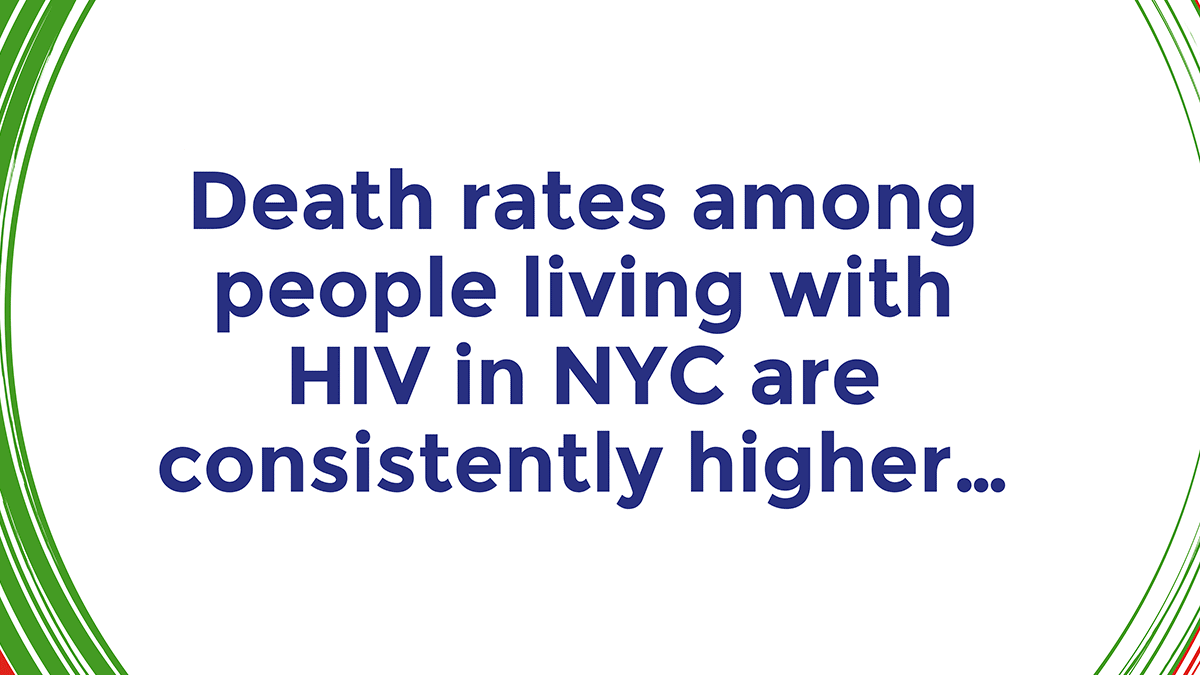
To view additional #NBHAAD 2022 infographics, visit our Social Media Infographics page. There, users can explore, download, and retweet ETE infographics published for various National HIV/AIDS Awareness Days from 2017 to the present.
To explore these featured data further, visit our PrEP Use, New Diagnoses and Linkage, Prevalence and Care, and ETE Metrics data visualization pages and filter results by race/ethnicity using the interactive menu selection options.
[i] Race/ethnicity data for PrEP users in New York State should be interpreted with caution, due to high numbers (26%) of missing/unknown race/ethnicity in the dataset.
